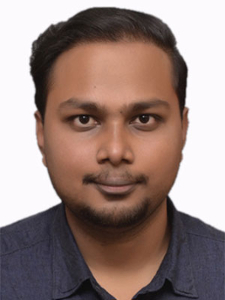OSE Seminar by Dr. Rahul Jaiswal of Advanced Micro Devices, (AMD)
Departmental News

Posted: September 6, 2023
Date: Thursday, September 7th, 2023
Time: 12:45 PM Mountain Time (US and Canada)
Location: Zoom Only
https://us02web.zoom.us/j/87152208171?pwd=c0E0Q1hFdmRwZGErMmthemx4MFNCdz09
Abstract:
Silicon heterjunction solar cell of Heterojunction with Thin Intrinsic Layer (HIT) structure is a commercially available technology, with a forecast for its increasing market share in the near future. With a significant market share, any minor improvement in device power conversion efficiency or in design efficiency can be beneficial three folds - customer return on investment, industry revenue and the overall carbon footprint (from manufacturing to recycling/ disposing of the device). Conventionally device optimization for solar cells has been achieved using a hit & trial approach where multiple experiments are done to evaluate the best process conditions and device parameters. This approach has some inherent disadvantages, especially, it is expensive in terms of resource, time and man-power required. In the past couple of decades, simulation techniques are also being utilized in addition to the conventional approaches and very recently use of data science-based techniques has become popular in research and is gaining some traction in the photovoltaics industry.
In this doctoral research, an innovative approach is presented, where device simulations for solar cells are designed and calibrated to match the performance of an industrially manufactured device using a minimal set of measurement data. Then a digital twin for the numerical simulations is developed by training Machine Learning (ML) models using simulation and measurement data. ML methods are also used for the calibration of simulation models. The use of machine learning helps in significantly reducing computational time to prototype any design changes in the device, for example, a machine learning-based prediction can take a few seconds to minutes, in contrast to hours of computation or fabrication/characterization required in simulation and experimentation approaches respectively.
Biography:
